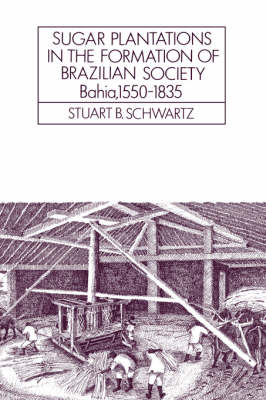Cambridge Latin American Studies
2 total works
Sugar Plantations in the Formation of Brazilian Society
by Stuart B. Schwartz
Published 31 January 1986
This study examines the history of the sugar economy and the peculiar development of plantation society over a three hundred year period in Bahia, a major sugar plantation zone and an important terminus of the Atlantic slave trade. Drawing on little-used archival sources, plantations accounts, and notarial records, Professor Schwartz has examined through both quantitative and qualitative methods the various groups that made up plantation society. While he devotes much attention to masters and slaves, he views slavery ultimately as part of a larger structure of social and economic relations. The peculiarities of sugar-making and the nature of plantation labour are used throughout the book as keys to an understanding of roles and relationships in plantation society. A comparative perspective is also employed, so that studies of slavery elsewhere in the Americas inform the analysis, while at many points direct comparisons of the Bahian case with other plantation societies are also made.
This book provides a general history of Latin America in the period between the European conquest and the gaining of independence by the Spanish American countries and Brazil (approximately 1492–1825). It is both an introduction for the student at the college level and a provisionally updated synthesis of the quickly changing field for the more experienced reader. The authors' aim is not only to treat colonial Brazil and colonial Spanish America in a single volume, something rarely done, but also to view early Latin America as one unit with a centre and peripheries, all parts of which were characterized by variants of the same kinds of change, regardless of national and imperial borders. The authors integrate both the older and the newer historical literature, seeing legal, institutional, and political phenomena within a social, economic, and cultural context. They incorporate insights from other disciplines and newer techniques of historical research, but eschew jargon or technical concepts. The approach of the book, with its emphasis on broad social and economic trends across large areas and long time periods, does much to throw light on Latin America in the nineteenth and twentieth centuries as well.

